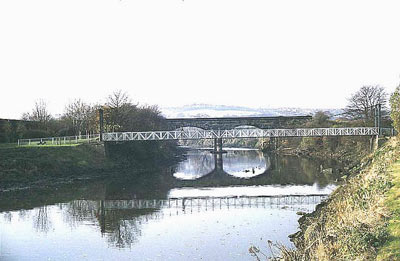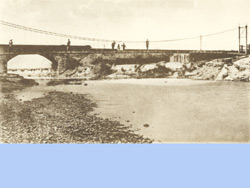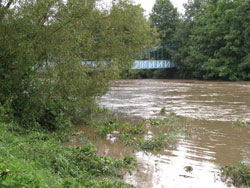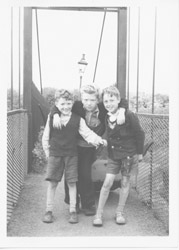
THE HIKEY BRIDGE

The footbridge at Swalwell is known locally as the Hikey Bridge, probably because it moves or sways when someone crosses. It is sometimes called the Sands Bridge. It is a suspension bridge erected in 1902 by D Rowell of Willesden, London to provide access between the allotments which once existed on both sides of the river. Suspended on wire ropes slung from steel towers, it has a timber deck of width 5 feet and a span of 121 feet. An earlier bridge existed at this site as evidenced by a stone abutment nearby and is shown on the 1867 Ordnance Survey map, and a ford was just to the west. The cables were renewed in 1925.
Although most of the allotments or 'gardens' have gone, the bridge still gives access to those remaining, and links the cycle/pedestrian paths on either side of the Derwent. The embankment carrying the A1 Western By-Pass intrudes to the northeast of the bridge, but otherwise trees and grass line the banks at this spot with views of the old railway bridge to the west, and the tall factory chimney, a Swalwell landmark, is to the southeast while swans are often seen swimming nearby.
- Constructed - 1902
- Type - suspension, on stone pillars.
- Position: Swalwell, Tyne and Wear.
- Grid Ref: NZ 201 625



